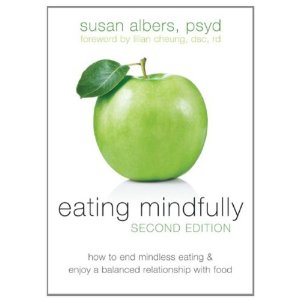Healthy Body Image
How do you feel when you look at yourself in the mirror or in pictures? Do you worry often about how others might evaluate you when looking at you?
These are frequent themes that many children, adolescents, and adults may fixate upon, especially for college-aged women and men. Given that a great deal of attention is paid to appearance in our society, many young people equate their worth with their physical attributes. Many of these individuals may struggle unnecessarily to attain an unrealistic physical ideal or feel "weak, inferior, or less worthwhile" than they might be if they were the "right shape." While there are emotional and physical benefits to eating healthy and engaging in regular, moderate exercise, it is interesting to know that we tend to misjudge our own bodies quite regularly and we tend to be our own harshest critic. As with many things, over-doing attention to diet and exercise has the potential to cause a great deal of harm, physically and emotionally. So, even if it's your goal to get in better shape or make healthier food and lifestyle choices, it is imperative that you treat your body well and allow for some acceptance of your body for what it does for you and not what it "says" about you.
Body Acceptance Tips
Be You!
We all come in different shapes and sizes and that is more than Ok!
- One of the best ways to acceptance is starting with the assumption that you are good, worthwhile, and attractive, just as you are.
- Wear clothes that fit your style and let others appreciate your style.
- Appreciate your strengths and look for these in others.
- View yourself and your friends from the perspective of the uniqueness of who you are not what you look like.
- Choose to make friends with that person in the mirror and to not treat them disrespectfully or as someone to be avoided.
Don't Buy the Hype
There are a lot of myths about body image expectation.
- For example, the "freshman 15" is really more like the "freshman 5."
- Practice thinking critically about media messages and wonder if the message is true for all people or are you being led to buy into something.
- Advertisers and the media typically depict individuals as unrealistically shaped and made to appear flawless (even via airbrushing), while these industries have an investment in sending the message that if you don't look like the model, then you need to change - and they just happen to have the right products to do the trick!
Eliminate the Negatives
Do not let critical statements dictate your self-esteem.
- Catch your own critical thoughts or challenge the opinions/statements of others
- Consider writing these down in a journal or list such as "3 things I like about myself today," "my personal strengths," or "positive body statements."
- Choose to associate yourself with friends and activities that are positive
Promote Balance in Your Life
Diets do not work for long, but healthy lifestyle choices do.
- Exercise as part of a healthy routine to benefit your body, not to work against it.
- Practice eating "mindfully" - listen to your body and what it is telling you.
10 Steps to Positive Body Image from the National Eating Disorders Association Eating Mindfully
Finding times to sit down, plan, and enjoy our meals can be a challenge. Commonly, we may find ourselves picking food out of convenience and eat on the run or while we are watching television, online, working on homework, or talking to friends. In all of this rush, we are not often paying attention to signals from our body. For example, are you eating because there is still food on your plate or because you're stressed? Also, terms from popular culture might shape how we think about food (low fad diets, pressure to stay thin, and fear of gaining the "freshman 15").
What is Mindfulness?
Mindfulness is a state of focused attention and conscious awareness. It means being fully present, in the moment, and without judgment. Mindlessness is just the opposite -- like when when you are driving somewhere and arrive without recalling the details of how you got there.
Mindful vs. Mindless Eating
|
Mindful |
Mindless |
|---|---|
|
|
Eat, Drink, and Be Mindful!
 This is about being diligently attentive to your body, mind, thoughts, and feelings as you eat. It includes a conscious awareness and attention to food choices, body, and nutritional needs. The approach functions via a nonjudgmental, accepting, and compassionate attitude toward yourself and others. For more information on eating mindfully, a great resource is Eating Mindfully: How to End Mindless Eating and Enjoy a Balanced Relationship with Food by Susan Albers, Psy.D.
This is about being diligently attentive to your body, mind, thoughts, and feelings as you eat. It includes a conscious awareness and attention to food choices, body, and nutritional needs. The approach functions via a nonjudgmental, accepting, and compassionate attitude toward yourself and others. For more information on eating mindfully, a great resource is Eating Mindfully: How to End Mindless Eating and Enjoy a Balanced Relationship with Food by Susan Albers, Psy.D.
Disordered Eating
While this section is not focused on the treatment of disordered eating, the National Eating Disorders Association manages a detailed website with good information and resources. Also, the CUA Counseling Center also has resources on eating concerns. The following are common symptoms of disordered eating:- Equating self-worth on weight, body size, or appearance
- Constant thoughts of food, dieting, and weight gain/loss
- Weighing oneself multiple times per day
- Eating in secret
- Binge eating
- Frequent diets, starvation, or use of diet pills
- Purging food via vomiting, laxatives, or diuretics
- Excessive exercise with a goal being weight loss or weight management
